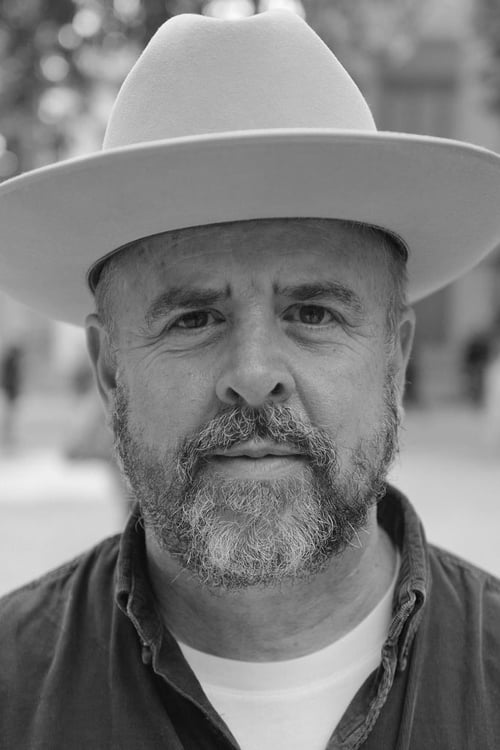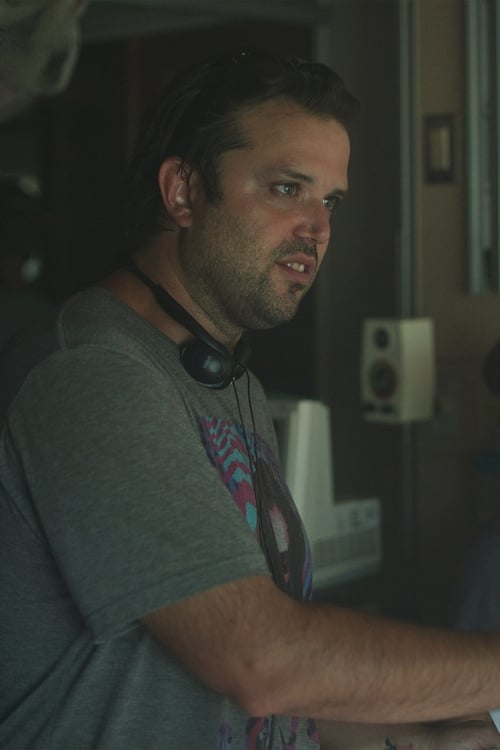ODDSAC (2010)
Gênero : Música, Terror
Runtime : 54M
Director : Danny Perez
Sinopse
Opening with torch-wielding villagers and a wall bleeding oil, this experimental film attaches vivid scenery and strange characters to the wonderful melodic wavelengths of the band Animal Collective, revitalizing the lost form of the "visual album."

Inspired in form by American police TV shows and soap operas, The Golden Boat is a madcap, surreal dash through the streets of New York city, telling the mysterious and often hilarious story of an aged street-person named Austin, a comically compulsive assassin, as he joins up with a young rock critic and philosophy student named Israel Williams. In the course of their adventures, Austin pursues his object of desire - a Mexican soap opera star - and along the way engages a host of TV characters and bit players, whose repartee range from gangsterish insults to the question of God's existence.

A portrait of poet Hugh MacDiarmid.

The mailmen, Šime, is one of the favorite people of a small town, on an island in the middle of the sea. Šime is very intelligent and the locals have high regards for him because he is unusually well versed in all the events and destinies in the small town. He knows the weather forecast, what winds will blow, what the sermon on the Sunday mass will be. For all the locals Šime is an untouchable genius. However, unlike the locals, the viewers soon find out that the Sime's ingenuity is based on his reading of the mail. Fascinated by other people's destinies, Šime has perfected a way for opening letters and keeping complete records on the people living on the island. He keeps a precise track of who gets what kinds of letters, and that gives him insight into discrete and private affairs of people. One day a beautiful woman named Dea moves into town, and all the men try and court her...

A gang of local thugs come in and start roughing up the customers and get abusive with the daughter. Suddenly, an elaborately coifed and tastefully dressed woman shows up and rescues the young woman and her father from further harm. This is Iron Pussy.

A child is confronted with the (ever young) old age of the world, its hazards, its cinema and music, shot in seven days in Rome, Fiumicino, Ciampino and Cineccità. What will happen on July 12, 1995, in Rome ? What will become of July 12, 1995, in Rome ?

Naomi Kawase collaborates with Shinya Arimoto, a Taiyo award-winning photographer she knows from university, to create a photo album of Machiko Ono (who Kawase scouted for her previous feature film Moe no Suzaku) and Mika Mifune (daughter of famous actor Toshiro Mifune) with the idea to contrast these two aspiring actresses, Ono coming from the rural Nara and Mifune from Tokyo. Kawase documents the photo shooting and interviews Arimoto, Ono and Mifune as the work progresses, while the tension between her and Arimoto increases over disagreement on the direction of the project.

The masterful new documentary from Wang Bing is an intimate, observational portrait of a peasant family who eke out a humble existence in a small village set against the stunning mountain landscapes of China's Yunnan province.
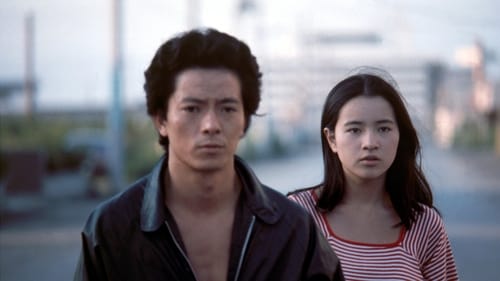
Though his parents help him run the family business, Jun still feels persecuted by their love; when they bar him from meeting with his girlfriend, tensions increase.
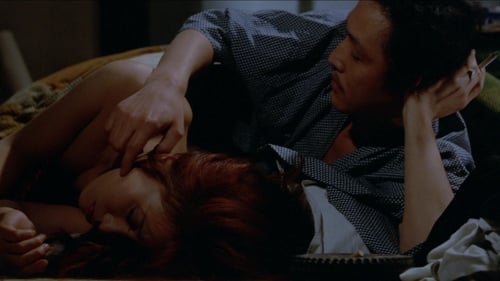
Junko Miyashita plays a mysterious hitchhiker picked up by a brute of a construction worker named Kenzo who takes her back to his run-down and cramped apartment in a not so good part of town. Claiming that she is running away from an abusive husband, she shacks up with him. In a futile attempt to escape the bleak working class surroundings, the pair engage in an obsessive erotic relationship.

It is 1918, the evening of The Great War. Austro-Hungarian empire is collapsing, and all around Croatia there are outlaw deserters, fighting in forests. A city journalist decides to become a country schoolteacher, just to find some peace in that restless political situation. But, neither the village is safe from the militaristic policy of the imperial goverment.

In his debut feature film, director Muhammad explores the inexorable dissolution of a family, ironically during the planning of a wedding, the kind of ritual that ought to bond family members together in shared joy. The film exposes the divisive dynamics of patriarchal oppression, and the terrible connections between familial and sociopolitical violence.

"Meat Joy is an erotic rite — excessive, indulgent, a celebration of flesh as material: raw fish, chicken, sausages, wet paint, transparent plastic, ropes, brushes, paper scrap. Its propulsion is towards the ecstatic — shifting and turning among tenderness, wildness, precision, abandon; qualities that could at any moment be sensual, comic, joyous, repellent. Physical equivalences are enacted as a psychic imagistic stream, in which the layered elements mesh and gain intensity by the energy complement of the audience. The original performances became notorious and introduced a vision of the 'sacred erotic.' This video was converted from original film footage of three 1964 performances of Meat Joy at its first staged performance at the Festival de la Libre Expression, Paris, Dennison Hall, London, and Judson Church, New York City."

In a small valley, riders pursue and kill a man. A horse thief, so his assassins claim. But for his ten year old son Issa, the disappearance of his father causes an avalanche of problems. With the family name stigmatized, Issa is bullied by the other children in the village. While his mother fights to clear her husbands name, Issa is left to his own devices. But unexpectedly, his solitude gives birth to his freedom, his real passion, horses.

My films are like that: in a room, but looking out onto an open sky. [...] I can’t really say it except to repeat that Bresson note, ‘that without a thing changing, everything is different.’ The film exists. The fiction is set up, and we believe in it. The justness of the agreement leads us to believe it, because everything plays equally at being a sign. That’s the arrangement of the elements. It’s an act of faith. La vallée close is just this: elements treated above all as if in a documentary that, without being changed, portray the story and reveal between them the elements of fiction. But above all seen as they are, insignificant. And then in the relations they set up, they can satisfy our desire for a story. -- Rousseau

This is the story of a young man at the dawn of the 21st century. He belongs to the most vulnerable, most futile and most appealing segment of society. Raoul flits from woman to woman, searching for seemingly unattainable love, until he meets Jeanne, who is fated to live freely and tragically.

Protagonist of the film is Melita Zganjer, woman who desperately tries to lose weight. This proves to be very difficult because she works in a pastry shop. Unlike her man-eating roommate Visnja, she only dreams about love and spends all her free time watching South American soap opera "Slave of Love". The man of his dreams is much closer than she thinks, though. Janko, young man who delivers pastry, loves Melita but is too shy to express his feelings. In the meantime, Eva, policewoman and another of Melita's roommates, tries to set her up with one of her colleagues. Those efforts fail, but Melita's dreams seems to come true with Antonio Mulero, "Slave of Love" star who arrived to Zagreb to shoot a feature film.

This half-hour documentary focuses on Medvedkin and his CineTrain of the 1930s, a sort of mobile film workshop, complete with post-production facilities, animation stations and a large laboratory. Traveling thousands of miles across the Russian countryside, the train stopped to have its filmmakers document Ukranian harvest practices, steel production facilities in southern Russia and other industrial / agricultural matters; With each crew member living in 1 square meter living quarters, all individuals on the train were responsible for various odd-jobs and other practical matters in addition to their own film-making concerns.
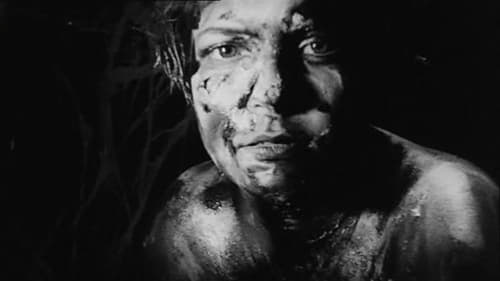
Short experimental film by Stephen Dwoskin.

Nikola is a man who knows how to really enjoy life; he's even able to rouse sympathy for his sinful ways. His brother turns a blind eye to his philandering although, with a broken marriage behind him, he doesn't have a clear conscience, either. Is there anything positive to be said about infidelity, or does it simply deserve the utmost contempt, particularly when it's more premeditated than spontaneous?

Trouble usually starts when the power falls into the wrong hands. That's how the book that hides an ancient evil fell to Stanislav. It does not matter whether Stanislav is a nice guy who helps old ladies cross the street, a psychopath, nerd, or a blood-thirsty young man.








